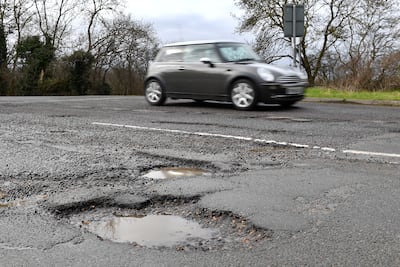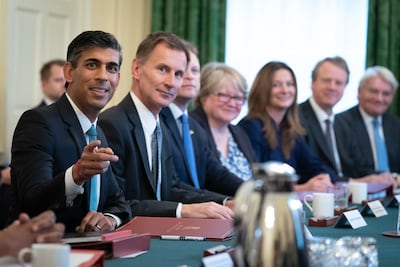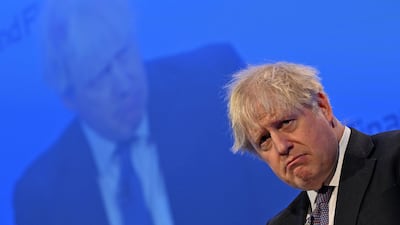I’m becoming obsessed with bumps in the road. There are more potholes now than I can ever remember, and I’ve had three punctured car tyres in the past 18 months.
The British government is promising pothole action, an extra £200 million ($245 million) for repairs next year. But Ian, the man who runs a tyres business and repairs my punctures, tells me he has never been busier because the roads are in such a terrible condition.
Meanwhile, a neighbour told me of the horrors of being in the Accident and Emergency services with her 90-year-old mother. They waited 10 hours to be seen and she thought her mother had died. Fortunately, she is recovering at home. Another neighbour tells me that she moved her son from a state-funded school to a private school because class sizes in the state-funded school were so large that her son was falling behind in his education and was becoming bored with school altogether.
There is one factor that brings together all three stories – the potholes, failing schools and crowded hospitals. It involves our former prime minister Boris Johnson.
He faces the parliamentary privileges committee on Wednesday with his future in the balance. Mr Johnson’s track record of lying has caught up with him. If found to have lied to parliament, he could be suspended for more than 10 days, resulting in a by-election in his constituency. That means that this week, Mr Johnson’s political career could be revived, or alternatively, look as if it is coming to an end.
Although he retains an ardent fan club within his own Conservative party, roughly two thirds of the British public see him as a liar. The connection between Mr Johnson and the terrible state of Britain’s public services is, however, clear.

In a wealthy, mature democracy such as the UK, most of us grew up expecting that whichever political party was in power there would at least be a degree of competence in government. Britain’s roads, hospitals, schools, police forces, transport system and other public services were never perfect, but they were generally respected and often reasonably well maintained. Right now, almost any public service I can think of is underperforming, full of unhappy workers, and often under-resourced.
The good news is that Mr Johnson’s successor, Rishi Sunak, seems determined to solve problems rather than create them. That’s a big difference from Mr Johnson’s three years in power, which were characterised by disruption, deep divisions in the Conservative party, cronyism and intrigue.
At least it was never boring. In 2019, Mr Johnson expelled 21 MPs from the party in rows over Brexit. His brother Jo Johnson quit parliament because he could not reconcile his own views with that of his brother’s leadership. The expelled MPs included respected intellectual figures such as Ken Clarke and Dominic Grieve. The Conservative party, which used to pride itself on pragmatism, fell into the Johnson-inspired chaos of a Brexit deal that no one much liked, including Mr Johnson himself.
Instead of fixing potholes, hospitals and schools, Mr Johnson tried to fix things for his supporters, including the disgraced former MP Owen Paterson. Mr Paterson lobbied the government on behalf of private companies who paid him money. Mr Johnson unwisely tried to protect Mr Paterson, and failed. He then became the first British prime minister to have broken the law, for having parties in Downing Street during the coronavirus lockdown. Eventually, even Conservative MPs tired of his antics when a fellow Conservative MP Chris Pincher was accused of groping two men. Mr Johnson claimed he was unaware of this behaviour even though he knew about it, and his serial inability to understand the need to tell the truth may therefore do for him in the end.

If you are still wondering what any of this parliamentary soap opera and Mr Johnson’s well-known character failings have to do with potholes, my punctured tyres and my neighbours’ unhappiness, then the answer is … everything.
As chief engineer of the psycho-drama that has been the British government in recent years, Mr Johnson has been Captain Chaotic. Failing British institutions and public services have been starved not just of money but of competent and ethical leadership from the office of the prime minister. Governments, like fish, rot from the head.
The Sunak government is therefore a relief, not because Mr Sunak is perfect but because he is at least attempting to be competent and in that sense rather boring. I mean that as a compliment. The normal to-and-fro of party politics has returned, and if MPs finally signal the beginning of the end of the political career of Mr Johnson this week, I won’t be alone in my sense of relief. An investigation by Sky News reported that Mr Johnson earned £3.7 million in the first six weeks of 2023 on top of his basic MP salary of £84,000 a year. That means Mr Johnson earned 85 per cent of all the money declared by all 650 MPs for their outside interests.
For that reason, I hope Mr Johnson ends up being able to spend more time with other people’s money. We need to leave politics to grown-ups who like fixing things, including hospitals, schools and potholes.


